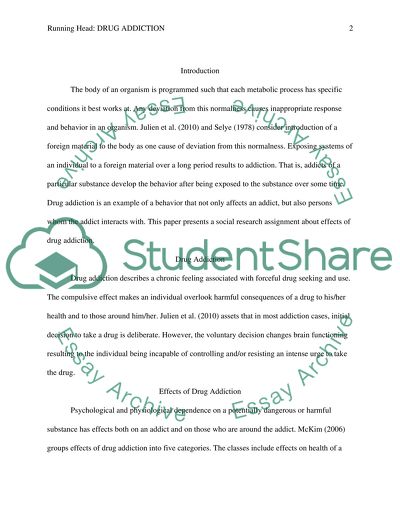Cite this document
(“Drug Addiction Research Paper Example | Topics and Well Written Essays - 1250 words”, n.d.)
Retrieved from https://studentshare.org/psychology/1451707-assignment-research
Retrieved from https://studentshare.org/psychology/1451707-assignment-research
(Drug Addiction Research Paper Example | Topics and Well Written Essays - 1250 Words)
https://studentshare.org/psychology/1451707-assignment-research.
https://studentshare.org/psychology/1451707-assignment-research.
“Drug Addiction Research Paper Example | Topics and Well Written Essays - 1250 Words”, n.d. https://studentshare.org/psychology/1451707-assignment-research.


